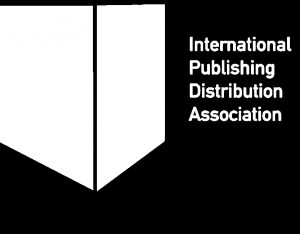5 renowned book industry organizations team up, with support from Creative Europe, to disseminate market insights and practical leanings about novel approaches in publishing. (between April and June 2021)
The SIDT initiative – standing for “Sustaining and Innovating cultural Diversity in literary Translations” – introduces a pilot project for professional trainings to small and medium sized independent publishers, distributors, and retailers across Europe.
These actors often spearhead translations of new literary voices across Europe. But in an increasingly competitive market for cultural media, including books, making such cultural diversity work commercially, too, has become a challenge to many stakeholders.
Literature needs to be catered to multiple niche audiences, in print and digital, across various distribution channels, and marketed through dedicated communities of readers. This requires to venturing into innovative business and delivery practices, driven by digital tools and platforms.
Overall, 4 different training modules of around 10 to 12 hours each, will be offered to interested practitioners, first between April and June 2021, and then a second time in fall of this year. Topics will range from “digitization of the publishing workflow”, and “radical innovation” approaches, to “user centric marketing” and “new business models” in notably publishing operations specializing in translated fiction.
Each module will introduce a group of around 20 to 25 trainees to market overviews and practical case studies, introductions in innovative business practices and hands-on group work. Experienced industry practitioners will act as trainers, together with professional moderators.
Participation at the modules is free but requires to submit an application with a detailed questionnaire and a motivational letter, through www.sidt-books.eu, with the project management board retaining a final decision on applications.
SIDT is a joint initiative of Beletrina Academic Press, Ljubljana, Slovenia, the Federation of European Publishers, Brussels, Belgium, the Fundación Germán Sánchez Ruipérez, Madrid, Spain, Lietuvos Leidėjų Asociacija (Lithuanian Publishers’ Association), Vilnius, Lithuania, and Rüdiger Wischenbart Content and Consulting, Vienna, Austria, as a project coordinator.
The project is funded under the Creative Europe programme by the European Commission.
The first two modules are:
- Going digital in publishing: Make your mid-sized book business a front runner!
Digital in the book business is so much more than ebooks and digital audio. The complete workflow has become digital, from authors preparing a manuscript, to contract management, editing and layout, all the way through to direct-to-consumer marketing, social media driven PR, and finally to read and analyze the book buyers’ preferences for making it all even better the next time.
While big corporate publishers spend millions on optimizing these processes, small independents have an ever-harder time to do the same with their small teams and limited resources.
This module is an opportunity to understand and take advantage of the digital tools available for small and medium sized publishing enterprises (SMEs). This training combines a presentation on the state of the art of AI and workflow improvements with insights into six business cases. Each of the trainees will have the opportunity to interact with the leaders of the cases and build a collaborative business case canvas for each of the projects.
The learning goals are to understand what is happening in the world of books in recent years and what trends are outlined for the future. This means providing data on the market and its evolution as well as how the different players in this environment are modifying their strategies.
Additionally, the trainees will:
- Get introduced to using AI tools in marketing in the book industry;
- Discover how to establish alliances with technology start-ups so that they work with us as a white label,
- Learn how to integrate the dynamics of the pre-test that is common in other industries into their production processes,
- Incorporate the innovations derived from the changes in the type of content (e.g., audio) as another facet of their work and
- Practice how to redirect content based on readers’ behavioural data.
The duration of the entire module will be 10 hours (across two sessions).
Target group: publishers, distributors and retailers
More info:
4, 7 and 8 June 2021
Prepared by Fundación Germán Sánchez Ruipérez, Madrid, Spain
4th Icebreaking work: how to colaborate and learn on business cases in a remote work session 10:30 – 12:30 FGSR team
7th The power of the information in a changing world
9:30 – 10:30
Rüdiger Wischenbart (RWC) + Q&A
Understanding the structure and latest trends in the market. The surge of new business models in publishing.
11:00 – 12:00
Tropo: Testing and surveying users to improve the success of audiobooks + Business model canvas blueprint
12:00 – 13:00
Quantified Reading: Assessing the behaviour of readers + Business model canvas blueprint
8th Adapting our workflow
9:30 – 10:30
José Manuel Anta (IPDA) + Q&A
10:30 – 11:10
Canon (Jörg Engelstäder): Solutions for innovation in publishing + Business model canvas blueprint
11:10 – 11:50
Logista (Arturo Álvaro): Innovation throughout the value chain, from standardisation to retail
11:50 – 12:30
Podiprint (Elisa González): How POD multiplied opportunities for SMEs in the publishing industry
12:30 – 13:00
FGSR : Conclusions
- Become a book business like a start-up: Fast, innovative, and yet high quality.
What would a book company look like if conceived as a digital start-up from scratch? How would the team discuss novel ideas – not only new content, but new ways for getting things done? How will relations with authors change, or with retailers, and readers? What cultural values must be preserved despite all the creative new thinking? What methods are available to initiate, and handle such a process?
During one sprint design thinking session, participants will generate ideas for digital marketing. The group will learn together to understand the impact of pandemic in the role of Internet for SMEs and prioritize the marketing triggers most useful during at this moment. The main objective of this module is to offer participants the opportunity to build knowledge, through a collaborative and active process using a remote canvas tool, about the meaning of disruptions that will impact the publishing sector in 2021 and how to create, interact with and derive value from radical innovation. The purpose of the second part of the module is to teach the basics of interaction design and state-of-the-art design software that have allowed big platforms to excel. Participants will then evaluate the value of lean and agile methodologies for publishing SMEs. Understanding these cornerstones of UX is essential to leveraging the strengths of the publishing industry and to understanding the mindset of the big platforms. Participants will learn the principles of user-centred design as well as how to organise and conduct research to discover user needs and meet business goals.
More info:
Dates: 28, 29 and 30 April 2021
Prepared by Fundación Germán Sánchez Ruipérez, Madrid, Spain
28th Design thinking in a new context for publishing: Inspiration
Icebreaking session and “How Might We”
- Learning to use the collaborative tool
- Identifying the challenges (long term goals and HMW) for a digital interaction with your clients
10:30 – 12:30
By FGSR
29th Design thinking in a new context for publishing: Ideation
Building a digital mindset for marketing
- Psychological patterns
- Prototype for marketing in the internet
9:30 – 12:30
By FGSR
30th Building a digital link for publishing: 4 hours developing with wordpress
9:30 – 13:30
- Link with the previous session
- What is UX/UI?
- CMS
- Using WordPress (DIVI)
- How to get a brilliant web structure design
- Optimization for customer conversion
- Build a good user experience
By Ironhack






